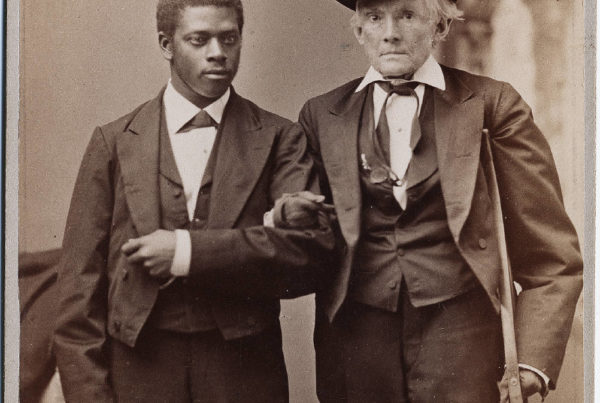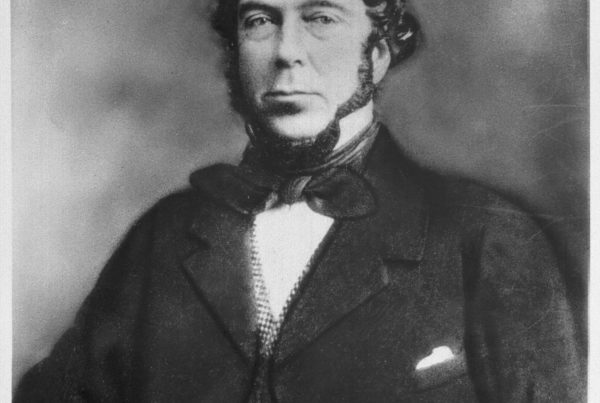“There is Jackson standing like a stone wall. Rally behind the Virginians.”
— Barnard Elliott Bee
A Review of Pursuits of Happiness: The Social Development of Early Modern British Colonies and the Formation of American Culture, by Jack P. Greene, Chapel Hill and London: University of North Carolina Press, 1988, 284 pages.
We were British colonists for a long time. From the first permanent English colony on the mainland of North America (Jamestown, 1607) until the first guns of the American War of Independence (outside Boston, 1775) is 168 years. That is the same span of time that exists between now and the days of President Monroe. Although the heroic enterprise of founding a civilization in British North America was carried out by what was only a handful of people by modern standards—no more than would 111 into a medium-sized metropolitan area today—understanding of that era is indispensable for any honest accounting of the American experience.
Yet outside the bounds of serious historical scholarship next to nothing is known and understood, and the public mind appears content with the kind of misleading and self-indulgent nostalgia that is enjoyed by the throngs that frequent Colonial Williamsburg. It would be more fitting, but out of step with the modern American temper, to ask ourselves how a few counties in Virginia, inhabited by a few hundred colonial freemen, could produce more statesmanship (that is, intelligence, ethics, patriotism, foresight) in the later 18th century than the entire Congress, federal judiciary, and executive branch today.
Fortunately, within the limited bounds of serious scholarship, colonial history is a vigorous, sophisticated, and relatively rigorous enterprise—more so than any other field of American history. There are several reasons for this. Colonial history presents a limited and finite, though large, body of historical records and literature. Unlike the diverse and proliferate 19th century, the field can still be mastered, almost, by a talented and energetic historian. There is not the maneuvering room for irresponsible generalization that larger fields encourage. Also, perhaps, the fact that American colonial history is a part of British history subjects it to the continuing discipline of English historians. They have their faults, but they do not generally go in for the kind of uncritical democratic romanticism that American historical writing has suffered from since George Bancroft began doing his thing in the early 19th century.
Jack P. Greene, one of the leading lights of current colonial and Revolutionary history, a scholar who has mastered the trick of being well-founded in the data and the literature without losing the trick of being able to draw out of them a meaningful synthesis, has in Pursuits of Happiness provided us with both a procrcalive interpretation and an accomplished socioeconomic portrait of the evolution and nature of colonial America.
The socioeconomic portrait, synthesizing a vast quantity of recent specialized literature, is of value in itself. Like all good colonial historians, Greene is aware that the mainland colonies were only part of the “settler societies” of the British in the New World. His colonial world includes not only the four regions of North America—the tobacco plantation society of the Chesapeake, New England, the Lower South, and the Middle Atlantic states—but also Ireland, the Atlantic colonies (Bermuda and the Bahamas), and the West Indies. Each had characteristics in common, each was distinct in itself, and each, as Greene is aware, could be further subdivided where useful. (Consider the difference between Massachusetts and Rhode Island, or between the two Carolinas.)
The thesis (really a two-partcr) has to do with the course of development of these colonial areas and their relative centrality in the formation of American culture. The first part of the thesis tells us that the Chesapeake colonies, centered in Virginia, provided the norm for America; that is, the other areas converged toward them in both socioeconomic structure and social ethos. Among much other evidence that might be cited, it is clear that African slavery was not only accepted in law, custom, and public opinion throughout all parts of the colonial world, but in the period before the Revolution it was expanding to a significant degree, including the colonies northward of the Chesapeake.
The second part of the thesis, more interpretative than descriptive, postulates that though the American culture that developed from 1775 was a result of the “powerful convergence” of all four mainland regions, the norm and central model was Virginia. The New England model of society, the given of American historiography, was, in fact, on the decline in every sense, even in New England. Rather than an industrious and cohesive New England diffusing its civilizing values through the rest of the American hinterland, the predominant How of values was the other way around. The Puritan model of Massachusetts-Connecticut was a backward-looking and closed system not really adaptable to American circumstances. Put another way, Americanization meant Virginianization, not Bostonization. The Virginia and not the Massachusetts conception of the good ‘.ociety provided the core of American values.
As Greene would have it, the liberty–and prosperity–seeking individualism that became the inspiration of the Revolution and the root of later American values grew and spread from the plantation society of the Chesapeake. (I am necessarily but not unfairly simplifying here.) After all, it was the planter son of a land-hungry Virginia pioneer who penned those words about “the pursuit of happiness.”
It should not be assumed that the author is uncritically fond of the upper Smith social system that he finds at the center of the development of American culture. The Chesapeake colonies were, in his view, exploitive and excessively individualistic, although clearly, in the period before the War of Independence, the leading class was moving toward ever greater social responsibility.
The Southern colonies were certainly brutal in their early days, unavoidably so—but so were all the others. I would suggest that to see them as unrelievedly the abode of an atomistic and ruthless individualism is an exaggeration. Greene needs to look into the work of M.E. Bradford, in A Belter Guide than Reason and elsewhere, in which Bradford demonstrates the growth of a Southern regime that worked along the lines of implied community understandings. The Southern colonies did have a sense of community. Unlike that of New England or modern urban society, however, it was much looser and more intangible—it manifested itself more in behavior than in institutions.
In that respect it had a flexibility that was indispensable and appropriate for the frontier. The American frontiersman, like American culture, had roots in Virginia, not Boston. Consider the rude but real chivalry of Southern Frontiersmen like Colonel Boone and Colonel Crockett, or, as late as the early 20th century, the gentlemanly individualism of The Virginian in far-off Wyoming. On the other hand, while New England communal values did have, then and now, many constructive fruits—in some contexts they provided for a “gentler, kinder America”—they can be overrated. One should look into the conditions in the New England merchant and whaling fleets and the number of pious Massachusetts sea captains who engaged in the Africa-to-Brazil slave trade right up to the American Civil War.
If I must criticize a superb work in order to earn my supper as a reviewer, I would make two related points. Greene presents, for the first part of his thesis (“the process of early modern British colonial social development”), a dense and elaborately argued case, often bolstered by charts, graphs, and “models of development” taken from the social sciences. These devices make his case neither more nor less true, but they make it a good deal less clear and interesting. So distinguished a scholar does not need such apparatus, which on other occasions he has avoided.
In this approach he is engaging honorably in a style of argument that unfortunately marks much of the better American historical writing these days. It rests upon a laudable hesitancy to make too sweeping generalizations and a laudable desire to anchor interpretations in hard data and accepted models of description. But systematic and persuasive historical thought does not need the deceptive solidity of quantitative evidence so obtrusively presented. The wholesome fear of presumption and exaggeration dooms much of our good history to a limited audience.
My second criticism has to do with the conflation or confusion of two different orders of generalization in his two-part thesis. The first thesis postulates the normative character of Virginia for early modern British colonial social development, the second the normative character of Virginia in the formation of American culture. These are related and mutually supportive assertions, yet they are of two different kinds.
The first is a descriptive statement, for which the marshaling of socioeconomic evidence is necessary and appropriate. The second hypothesis is really in another realm of discourse. It is a value-laden, symbolic, and political assertion. In no way can proof of the first statement by descriptive evidence, no matter how convincing (and such evidence never goes undisputed for long), carry the day for the second statement. This would be to expect the sons of New England, who have for generations enjoyed the psychic, economic, and political advantages of prestige to give up their privileged position without a light, simply because they have been proved wrong.
Greene has, in fact, written only a prologue, only scratched the surface of the question. The really interesting part is how did we ever come to make the mistake of putting Massachusetts at the center of American culture to begin with. With due modesty, Greene offers only a brief and suggestive answer to this question. He knows it has something to do with the success of the New England-centered Bancroftian historical writing of the 19th century. And, he proposes, the anachronism of slavery forced the South steadily from the center of American experience. But this does not really explain how New England scribblers in the 19th century managed to preempt to themselves a central role in the founding of America that belonged to other and better men. It merely moves the questions back another notch.
My answer is that there have always been two ways of regarding the success of the American experience and values. One is to give thanks for the brains, hard work, courage, honor, and luck of our forefathers. This altitude leaches humility and respect for tradition. The second way is to view the success of America in boundlessly self-congratulatory and messianic terms, to believe quite literally that America has a divine mission above history and that law and tradition are to be trampled underfoot in the interest of ongoing democratic revelation.
The lasting success of George Bancroft was lo make a compelling literary synthesis of three elements—the Puritan mission of the founding of New England as a City upon a Hill, democratic aspirations, and elitist messianism. These three elements are incongruous with each other and with the main line of American history, but they appeal irresistibly to a certain type of American character. This synthesis has been with us so long and appeals so powerfully to the elitist streak that lurks in the bosom of the most effusively professing democrats that we take it as natural. It is, in fact, highly unnatural in every sense.
As Greene shows, the Puritan mission was not central to the development of the American success story. Further, the relationship of New England to the growth of American democracy was (and remains) in the main negative. Historians have pointed out that Bancroftian history was chauvinist, racist (Bancroft was a believer in Teutonic supremacy and a Prussophile), uncritically Whiggish, and embodied a heretical conflation of American institutions with Divine Providence. But I mean more than this. I mean that history lied about the due source and nature of American democracy.
Bancroft assumed a pose as defender and interpreter of Jeffersonian and Jacksonian democracy for which he was in no way suited. Once democracy had triumphed in spite of New England, he reinterpreted it to fit a New England model. (Please allow me to use “New England” here as a shorthand for a persistent streak of messianic elitism in American history that tends to center towards Boston. I know that New England includes Daniel Webster and Robert Frost as well as Emerson and Theodore Parker.)
I can make my point perhaps by taking note of the achievements of Bancroft’s 20th-century disciple, Arthur M. Schlesingcr, Jr. In what many regard as the classical interpretation of Jacksonian democracy, Schlesinger took a few highly untypical Northeastern intellectuals (untypical of their own region, which was Whiggishly conservative-progressive, and totally untypical of the great swelling of grass-roots Southern and Western sentiment that actually was Jacksonian democracy) and by literary power and ideological utility made them into the norm.
I do not mean to underestimate the symbolic power of democratic messianism. It runs a good deal broader and deeper than its publicists, in part because Bancroft managed to link it to the Union cause of the Civil War, although indeed the Union cause could be and was adequately sustained on other grounds. Consider that the Republican Party is now overwhelmingly Western and Southern conservative-populist, and that New England is a hopeless minority in American politics. But such is the power of symbolism that recently both parties adopted a New Englander as their presidential candidate.
Whatever this is, it is not my kind of democracy, not majority rule. The Virginia model—despite slavery—was not only more important and more viable and more truly the source of the belter American values, it was also more democratic—it provided the possibility of consensual majority rule and a great deal of individual liberty of the right son. The competing party did and still does regard democracy not as majority rule but as a code word for themselves—the vanguard of inspired carriers of democratic revelation, out lo impose their sublime will on an unwilling people and a recalcitrant reality.







